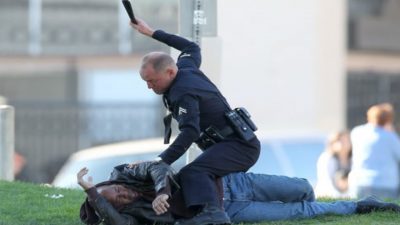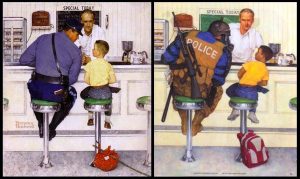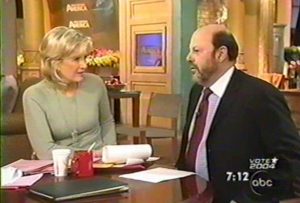Police pressured him to confess to a murder that never happened
Perez, then 53, said he wasn’t overly concerned as his fiercely independent father knew many people around the area, where they had lived for years, and would often make visits without saying where he was going. But when he still hadn’t come home by the following afternoon, Perez called the non-emergency police line in case someone reported seeing his father.
“I just want to know that if there’s an elderly man walking in the neighborhood or sometimes he maybe got disoriented … let me know, it may be my father. That’s it,” he told CNN.
The community service officer who took the call, Joanna Piña, said she felt something was off.
“He didn’t seem very worried about his father missing and he kept rambling off to different topics that was not about the missing person report,” she recalled four years later in a legal deposition taken for Perez’s civil case for damages.
Piña and her supervisor, Cpl. Sheila Foley, went to follow up at the Perez home, where both seemed taken aback by the state of the house, according to footage from body cameras. They saw possessions piled up and construction work going on.
“You didn’t do it in a manner that would be somewhat normal,” Foley said to Perez when he described removing a wall unit from the older man’s room. She followed up: “Are you sure you didn’t argue with your dad?” On body camera footage, Perez told them he was tired as he stumbled over some of his words and tried to explain why he kept on working after his dad had left and why his dad’s possessions were in a messy heap.
The officers called for reinforcements, first a sergeant and then detectives. More questions were asked, and Perez agreed to go to the police station to try to help figure out where his dad might be.
At this stage, no one is alleging the police had done anything wrong. An elderly man was missing. His son called for help but often veered into tangents, talking about the work he was doing in the house, or the dog’s diet. The police needed more information.
It was what happened next that became more and more disturbing.
While detectives questioned Perez, police sought a search warrant
Det. Robert Miller asked Perez to accompany officers to the Fontana Police Department, a single-story building in a downtown municipal campus dotted with palm trees. There, in the early evening, Perez first entered the interrogation room, what he now calls “their little box of horrors.”
Perez remembers the first 90 minutes or so of questions with Miller and other officers as polite and reasonable, eliciting information about where his father might have gone. He said he was focused on giving ideas for where his father could be — with his brother, his daughter, or a friend.
That same evening, officers were getting a search warrant for the Perez home, the men’s phones and their vehicles.
By the time Perez’s father had been gone for about 24 hours and a second interrogation began with Miller, the tone had changed.
Crime scene investigators took photographs of what they thought was blood evidence, and a cadaver dog named Jet brought by a sheriff’s volunteer alerted to the possible scent of human remains in an upstairs bedroom, police reports show.
Miller questioned Perez until the early hours of the morning on August 9, and a DNA swab was taken from the man now considered a suspect at 4:41 a.m. It was a second night with little or no sleep for Perez. Miller wrote in a police report that Perez had been told he was free to leave, and other officers said later he was not under arrest.
But the many hours in the interrogation room painted a different picture.
When detectives David Janusz and Kyle Guthrie started their shifts on August 9, they were asked to take over the questioning of Perez. Guthrie, in a 2023 deposition from the civil case, described a quick meeting with their lieutenant who said, “something to the fact that they believed Thomas — or Mr. Perez — had killed his father and they had asked Janusz and I to interview him regarding the complaint.”
There was “a feeling” among police that Perez had killed his father, Janusz agreed in a deposition in October 2022 for the same civil case.
The two detectives took Perez to a coffee shop and then drove him around town for hours. They went to a donation box where some of his father’s clothes had been taken, and to housing tracts where new homes were being built, apparently looking for where a body could have been dumped. At one point, while at a pond water hazard on a golf course, Perez asked if bodies floated, Janusz said in the deposition.
The detectives also used the driving time to berate Perez, suggesting he had hurt his father — perhaps under the influence of medication he was taking for conditions including high blood pressure, depression, stress and asthma, according to a review of body camera footage by US District Judge Dolly Gee, who was assigned to review Perez’s civil case.
“Where can you take us to show us where Daddy is…?” Guthrie asked Perez. “Thomas could never do anything like this … but that’s not the issue. The medication, it took over, and we need to find Daddy right now.”
Later, Perez asked for medical attention. “But… I need, I needed attention.” Janusz replied: “No you don’t.”
This was the point where the detectives clearly crossed a line, according to Jeff Noble, an expert in police procedure who reviewed the case at the request of Perez’s lawyer as part of the civil action.
“It begins with a six or seven-hour interrogation by Det. Miller, then Janusz and Guthrie put him in their car and start driving him around and take him to different places so he can identify where this body is,” Noble told CNN. “And during that drive they are suggesting things that he may have done to his father. They’re telling him that his father is dead. They’re telling him they know where his father’s body is at, and when he’s asking for medication or to go to the hospital, they’re telling him no, they’re denying him access to those things.”
The city rejects that allegation. “Mr. Perez requested and was given his medication during his detention,” a statement to CNN said.
Perez told CNN he thought the officers were taking him to the train station to check any surveillance video that could have shown where his father had been headed, but then they changed direction.
“All they did was have me out in dirt fields today looking for bodies … they got me all brainwashed,” he said later that day in the interrogation room. “Where is dad, where’s dad, where’s dad?”
Police brought in a friend of Perez’s to help elicit a confession
The detectives took Perez back to the Fontana police station in the middle of the day of August 9 and returned him to the interrogation room. Perez told CNN he asked for a lawyer or to go home and was refused both, contrasting with assertions from officers that he was not under arrest and could leave.
Perez did ask to see a friend and business partner, Carl Peraza. But before Peraza was allowed in, detectives recruited him to their side.
“The first two officers, Janusz and the other officer with the shaved head (Guthrie), they took me to the hallway again and then they told me that, wow, that Tom is going to be detained for murder,” Peraza said in a February 2023 deposition. “Then they went into some detail as to they had overwhelming evidence with blood everywhere,” he said.
The detectives told him they had video of Perez dumping clothing with blood on it. “They said there was a location where they believed the body was buried, and that they were going to dig it up…
“The officers indicated that what they needed me to do most was try to get an exact location of where Tom not only buried his father, but also to confess that he murdered his father.”
Peraza said later that he did not understand how it was possible that the elder Perez was dead or that his son could have killed him, but he tried to help the police.
CNN has viewed 8 hours and 30 minutes of video showing what happened next.
Peraza told his friend the police had evidence against him. Perez knew that police are entitled to lie in interrogations and said so, but Peraza kept on.
“It’s blood everywhere, in the garage, in the truck,” he said.
“I can’t figure this out. That’s what I don’t understand, Tom. They have evidence, they have … there’s the garage, truck … and your dad missing. I mean, Tom, could it, could it have happened?”
When the detectives came back into the room, Peraza said he heard them say that Perez had killed his father, but he never heard Perez agree.
After they left Perez alone, Peraza told the officers he had tried to help but still couldn’t understand how there had been a murder, even if the evidence was there. At that point he heard an officer say the evidence was “circumstantial.”
“That was another shock to me,” Peraza said at his deposition. “It went from ‘overwhelming’ to ‘circumstantial’ and I was even more confused. I wanted to go in and let Tom know, after I just drove him to try to confess, that it was circumstantial, not overwhelming as I was told.”
He was not permitted to talk to Perez again that day.
Police badgered Perez about his father, saying, ‘You killed him’
Janusz and Guthrie returned to the interrogation room later in the afternoon of August 9, seen in the video reviewed by CNN.
Janusz said Perez could end up owing the city up to a million dollars in restitution for not helping the police locate his father.
Guthrie said, “He’s missing because you killed him.”
Then they brought in Margo, the family dog, and said she was suffering because she had witnessed the murder.
“It did happen. It did happen. You killed him, and he’s dead,” Guthrie told Perez. You know you killed him … You’re not being honest with yourself. How can you sit there, how can you sit there and say you don’t know what happened, and your dog is sitting there looking at you, knowing that you killed your dad? Look at your dog. She knows, because she was walking through all the blood.”
Time and again they asked Perez to imagine what could have happened. If he responded with a suggestion, they took that as fact.
At one point, when the detectives had already discussed whether there had been a fight with a stick and broken bottles, and whether Perez had run over his father with a truck, they asked if it was plausible that the younger man had stabbed the older one.
“What about the scissors?” Janusz asked.
“That’s possible,” Perez replied. “Possible?” Janusz followed up. “It’s plausible,” Perez allowed. “Did you stab him?” Guthrie asked. “I didn’t think that I did,” Perez said.
By then it was about 24 hours since Perez had gone with the police to the station and close to two full days since he had seen his father.
The detectives went through more scenarios, but Perez made no clear confession.
Yet in his report of his investigation dated August 31, 2018, Janusz wrote this:
“Thomas said he grabbed a pair of scissors and went over to the couch and stabbed his dad. He said if he was enraged he probably stabbed him a lot. Thomas said after his dad was stabbed, his dad went upstairs to the bathroom. Thomas heard him fall so he went up there and saw his dad lying on the ground of the bathroom not waking up. He said he slapped him in the face a few times, but he still wouldn’t wake. Thomas’ dog came in the bathroom and so he tried getting the dog out of the bathroom because there was blood everywhere. Once he got the dog out, he then wrapped up his dad’s body in the green shower curtain and transported his body down the stairs and into the garage. He then put his dad’s body in the back of his truck.”
None of that happened.
But in the interrogation room, Perez was exhausted, confused and beginning to believe perhaps it had. He broke down, wailing, trying to tear his hair out and ripping open his shirt.
The detectives, seeming to have convinced Perez he had killed his father while in some kind of fugue state, suggested he apologize to his father. “I’m sorry dad,” he said. “I had no idea. I love you.”
To his sister, he offered, “I didn’t mean to take your daddy away. I have no idea. I still don’t understand.” These apologies, along with Perez’s responses to scenarios put forward by the police, became what the police called a confession.
Perez threw up in a trash can. The detectives kept pushing for details, but all Perez could say was, “I don’t know.” When left alone, he says he tried to take his own life with his shoelaces.
Judge Gee said the detectives’ tactics “indisputably led to Perez’s subjective confusion and disorientation, to the point that he falsely confessed to killing his father, and tried to take his own life.”
Detectives suggested the beloved family dog would be euthanized
Perez told CNN he has seen parts of the interrogation video but has no wish to relive what he calls the cruelty of the officers who turned his life upside down.
“I no longer could see in color,” he said of the early evening of August 9, when he mentally and physically broke down. It was 28 hours since he had called police, nearly two days since he had seen his father, and he had not taken his medicine or had much sleep or food. “I was seeing everybody in black and white and then I felt physical pain, like an electric shock, and it went from head to toe.”
He said there came a time when he did believe his father was dead, though he still couldn’t fathom that he could have been responsible. And then the detectives pushed again, telling him about a dog who witnessed a murder and was so traumatized it had to be put down and suggesting the same thing could happen to Margo.
“She’s traumatized, she has PTSD,” Guthrie said.
Perez remembered: “I was still hanging on, dealing with that loss until they told me they’re going to kill my dog too.”
Even among all the other transgressions, that stands out to Noble, the veteran former police officer and expert on procedure.
“When you go over the line and you engage in deceptive action that would cause an innocent person to confess to a crime they didn’t commit, that’s where the line is crossed,” he said.
“And certainly, when you’re threatening somebody by telling them that they’re going to have to pay up to a million dollars in restitution by not telling you what had occurred, telling them you’re going to have to euthanize their dog if you don’t confess — that is not edging closer to the line, that’s leaping over the line.”
As a third team of detectives rotated into the interrogation room, Margo the dog was taken to a shelter in a neighboring county and turned in as a stray.
And shortly before midnight on August 9 — some 33 hours after he called police to keep an eye out for his father — Perez was committed to a hospital psychiatric unit to be detained for an evaluation after telling officers he wanted to kill himself.
Father found, but police still don’t drop the case
But by this time, at least one of the detectives in Fontana knew that the elder Thomas Perez was alive and well. His daughter had spoken to Miller earlier in the evening while her brother was still in the interrogation room, saying the missing man was at Los Angeles International Airport waiting for a flight to visit her in Oakland, California.
Airport officers met him at the gate and asked him to wait to speak with Fontana officers. They detained him and read him his Miranda rights, even though he was suspected of no crime.
“They picked me up, they read me my rights and my mind’s going, ‘What’s going on?’,” the elder Perez told CNN. “They put me in the car, put me in the back seat and they started to explain the situation … and I still had no idea what they’re talking about.”
He had gone to visit his brother and then stayed with a friend, he said. He knew nothing about the search for him until he called his daughter. She had bought him a plane ticket to visit her in Northern California before that trip was cut short by the arrival of the Fontana police.
The father was even put in the same interrogation room just vacated by his traumatized son, he told CNN, later recognizing a blanket he saw on the floor that had been used by the younger man. He said he was given scant information.
“They were at the house, and they were looking over everything because they believed there was a murder that occurred there,” he said of what he was told. He said he was asked about his relationship with Perez and if it ever got violent, but was never told his son had been accused of killing him — either at the police station or when they took him home, breaking crime scene tape to let him into his house.
Meanwhile, no one told Perez his father was alive. Instead, he was in the psychiatric unit, thinking his father was dead, perhaps by his own hand, and that his dog was being killed too, also because of him.
Jerry Steering, Perez’s lawyer who helped him secure the settlement, said of the detectives: “They didn’t have the nerve to look him in the face. They didn’t have the nerve to tell him his dad’s OK.”
Perez’s father went to see him but was not allowed in for several days, the younger man said.
“They left me in that mental anguish and to just suffer continually and then they put the block on the phone so that I can’t receive the calls,” Perez said. “I suffered that way for three days.”
Only when a nurse connected the pair on the phone did Perez say he finally learned his father was alive.
“She handed the phone to me, and I just dropped to the floor crying,” Perez said, his voice breaking, “because he was alive, and he said he’d been trying to call but they’ve been rejecting his calls.”
A week after his father went for that fateful walk, the pair were reunited when Perez was released from the hospital.
“When he saw me, he just stared at me and he said, ‘Dad, is that really you?’” the elder Perez said. “And I said, ‘Yes, it’s me,’ and he goes, ‘They told me you were dead.’ And I said, ‘No, no I’m here.’
“And then he walked slowly to me… and then we embraced, and we had tears in our eyes.”
After finding a microchip under her skin, the shelter determined that Margo was not a stray and contacted the Perezes to pick her up.
The Perezes say she came home with an injury and needed surgery for a torn ligament. While they were trying to help her, the police were still looking for a victim.
Detectives still believed there was a victim
Instead of abandoning the case after Perez’s father was found, Fontana police doubled down on their suspicions that someone had been hurt or killed in the house.
Police got permission to put a tracker on Perez’s truck. In a statement of probable cause applying for the warrant, Miller referenced blood in the house and how a cadaver dog alerted officers to something.
“It is believed by myself and other detectives involved in this investigation that there is a possible victim that has not yet to be located (sic),” wrote Miller, the first officer to question Perez, on August 15.
“(Y)our affiant, along with other FPD detectives believe there is still an outstanding deceased victim possibly related to a homicide,” he wrote.
Evidence photos from the scene show apparent drops of dried blood that Perez attributed to previous accidents. But at a deposition in his civil suit in October 2022, he was shown what Shel Harrell, a lawyer for the City of Fontana, said was an evidence photo of a door in his home with what appeared to be blood on it.
Perez said it looked to be his door, but said there were no red marks on it when police officers showed up.
Harrell asked if he was saying that Fontana officers were lying when they said it was there, to which Perez answered, “Yes.”
In a court document in support of Perez’s civil claims, the police expert Noble noted that the photo was not mentioned in any police reports or relied on to get search warrants.
And while samples of suspected blood were taken from the sofa where Janusz wrote Perez had stabbed his father and from elsewhere in the house, no case has been brought against him or any other victim found. Noble wrote that no positive identification of blood was ever made. The elder Perez told CNN the samples had been identified as coming from a male, but that was all.
CNN asked Harrell about the photo of supposed blood evidence and other matters. Harrell did not respond to CNN’s questions. Instead, he said the videos CNN has viewed are subject to a protective order and should not be published.
Harrell, whose office is counsel to the city of Fontana, asked CNN to return any video it had, unaired.
Officers involved were later promoted
To the judge who allowed Perez’s lawsuit to proceed, leading to the settlement, some of the police actions went too far — even if some initial suspicion could be justified.
“Perez’s mental state, among other factors, made him a vulnerable individual,” Judge Gee wrote. “He was sleep deprived, mentally ill, and, significantly, undergoing symptoms of withdrawal from his psychiatric medications. He was berated, worn down, and pressured into a false confession after 17 hours of questioning. (The officers) did this with full awareness of his compromised mental and physical state and need for his medications.”
Perez had filed his complaint in August 2019, a year after the events, and settled with the city of Fontana for nearly $900,000 in the spring of 2024, after some of his claims were dismissed.
The city of Fontana, however, continues to deny that lines were crossed in the handling of Perez as a suspect.
A statement to CNN from the city attorney, Ruben Duran, said: “The settlement specifically included no finding of wrongdoing, nor any violation of state or federal law.” Duran said police “reasonably suspected a violent act had occurred” and that Perez was not isolated and was fed and given medication. He also said the investigation stopped when Perez’s father was found alive.
An earlier statement posted and later removed from the city website read: “The settlement in this case was a business decision which was recommended by a federal court mediator to save the city further time, effort and expense.” It ended: “City law enforcement leadership have developed many service enhancements to deal with mentally challenged individuals.” Duran has not responded to requests for more details on the enhancements.
Guthrie, who was not named as a defendant, said of Perez in his deposition: “I don’t think that what we told him would cause him emotional distress because as you can see in this interview, he’s not even upset. He didn’t even react to the fact that we made an assumption that his father was not living anymore.” He said he had not watched the video of the interrogation — where Perez’s emotional breakdown is clear — before being shown clips at the deposition.
Guthrie said using “a ruse” during interrogation was clearly acceptable. “I don’t think that the techniques we used on him are the reason why he admitted to killing his father.”
Months after the interrogation, Guthrie was named a 2019 Employee of the Year for the Fontana Police Department.
Guthrie is now a sergeant. So is Janusz.
And Michael Dorsey, the lieutenant who Guthrie says told him and Janusz that officers believed Perez Jr. had killed his father, has been promoted to captain and is now chief of police of Fontana, overseeing 188 sworn officers, according to its website.
Dorsey was not a named defendant in the civil suit. CNN asked him for comment and has not heard back.
Noble, the police expert who has run internal affairs investigations, said the multiple failures should have led to a full review and more training.
Noble said the video of the interrogation, especially the suggestion that Perez’s dog may have to be euthanized, should have been a call for action. “I can’t believe there’s a chief of police in the United States that would sit back and somehow say that’s OK.”
He said officers should have pulled each other back rather than joining in and that it was clear that a 17-hour interrogation went too far.
“This wasn’t an error or a misstep,” he said. “This is a series of gross departures from generally accepted standards.”
The detectives may have become overwhelmed during their investigation, he thought, to the point where they did believe there had been a homicide. “They formed that belief based on a bias of their investigation without reviewing all the facts or stepping back and really assessing what they actually had,” said Noble, who says he has been an expert witness in criminal and civil legal matters involving police procedure, misconduct and corruption.
“With that said, by repeatedly lying to him, by denying him basic needs, by this incredibly long, prolonged interrogation, they overstepped their bounds in a way that no reasonable officer should have done.”
Father and son are still grappling with fallout from the ordeal
Tom Perez, now 59, told CNN it’s taken years for him to begin to get over the trauma of what happened.
“I got to a point where I was afraid to even go get the mail anymore,” the younger man said, showing how he had had to rely on his father. “I was afraid to come out. I said I don’t know who might be there.”
The two men spoke to CNN recently at the home they still share. Perez said it was the first time they had talked so much together about each other’s experiences during the ordeal.
The older Perez said his son was so traumatized for a while that he couldn’t work or even answer his phone.
“Luckily my father was there to make sure that all the necessities were met,” Perez said. “And then I started to work my way out of the hole, knowing that it’s upon me to get myself out — along with some help, of course.”
The dog, Margo, died in February 2023, leaving a hole in the men’s lives. But father and son still have each other and are grateful for that.
“I helped him … at that time to get through that,” the elder Perez, now 77, said of his son’s trauma after his interaction with police. “We help each other.”
But if there is one overriding lesson Perez has learned, he says it is a negative one.
“Don’t call the cops.”
CNN’s Norma Galeana, Jeff Winter and Ali Zaslav contributed to this story.
City to pay $900K for making man confess to murder that never happened
Man Who Reported His Dad Missing Was Coerced into Confessing to Murder — Yet Father Was Alive
![Los-Angeles-Times-Logo-2]() Police pressured him to confess to a murder that never happened. Now, Fontana will pay him $900,000
Police pressured him to confess to a murder that never happened. Now, Fontana will pay him $900,000
![KCBS News Piece on Thomas Perez v. City of Fontana - JLS & Reporter]() View CBS News Video on
View CBS News Video on
Fontana pays $900,000 settlement after police interrogate man for 17 hours
![The Guardian logo]() Psychologically tortured’: California city pays man nearly $1m after 17-hour police interrogation
Psychologically tortured’: California city pays man nearly $1m after 17-hour police interrogation

Fontana pays nearly $900,000 for ‘psychological torture’ inflicted by police to get false confession
Fontana pays nearly $900,000 for ‘psychological torture’ inflicted by police to get false confession
‘In my 40 years of suing the police I have never seen that level of deliberate cruelty,’ says an attorney for Thomas Perez Jr.

PUBLISHED: May 23, 2024 at 2:01 p.m. | UPDATED: May 23, 2024 at 4:51 p.m.
By TONY SAAVEDRA | tsaavedra@scng.com | Orange County Register
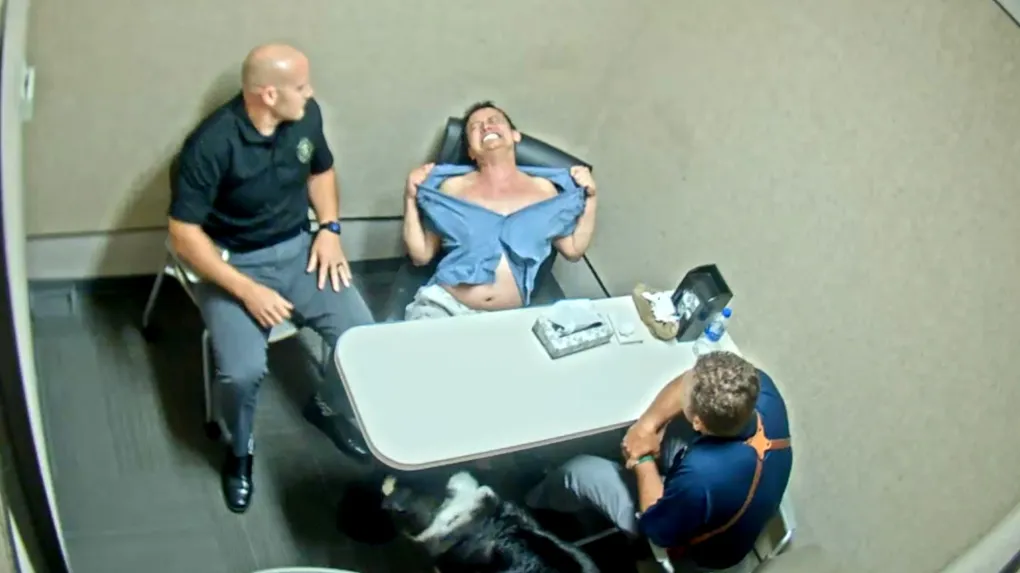
Within hours after Thomas Perez Jr. called police to report his father missing, he found himself in a tiny interrogation room confronted by Fontana detectives determined to extract a confession that he killed his dad.
Perez had told police that his father, 71-year-old Thomas Perez Sr., went out for a walk with the family dog at about 10 p.m. on Aug. 7, 2018. The dog returned within minutes without Perez’s father. Investigators didn’t believe his story, and over the next 17 hours they grilled him to try to get to the “truth.”
According to court records, detectives told Perez that his father was dead, that they had recovered his body and it now “wore a toe tag at the morgue.” They said they had evidence that Perez killed his father and that he should just admit it, records show.
Perez insisted he didn’t remember killing anyone, but detectives allegedly told him that the human mind often tries to suppress troubling memories.
At one point during the interrogation, the investigators even threatened to have his pet Labrador Retriever, Margosha, euthanized as a stray, and brought the dog into the room so he could say goodbye. “OK? Your dog’s now gone, forget about it,” said an investigator.
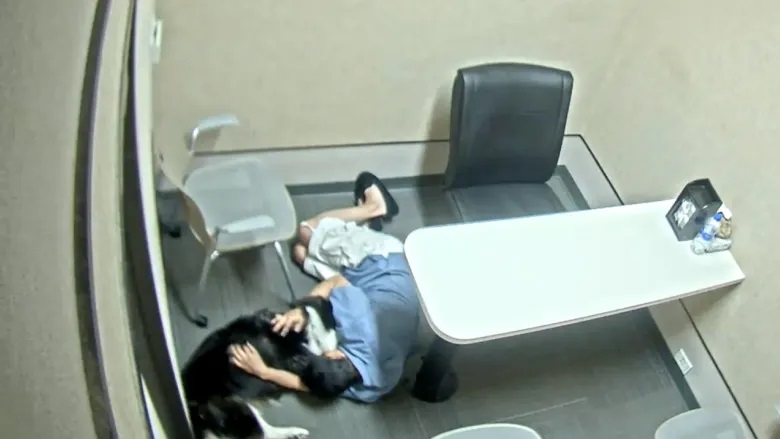
“How can you sit there, how can you sit there and say you don’t know what happened, and your dog is sitting there looking at you, knowing that you killed your dad?” a detective said. “Look at your dog. She knows, because she was walking through all the blood.”
Finally, after curling up with the dog on the floor, Perez broke down and confessed. He said he had stabbed his father multiple times with a pair of scissors during an altercation in which his father hit Perez over the head with a beer bottle.
Suicide attempt
He was so distraught that he even tried to hang himself with the drawstring from his shorts after being left alone in the interrogation room. Perez was arrested, handcuffed and transported to a mental hospital for 72-hour observation.
But later that day, the truth derailed the detectives’ theory and their prized confession.
Perez’s father wasn’t dead — or even missing. Thomas Sr. was at Los Angeles International Airport waiting for a flight to see his daughter in Northern California. But police didn’t immediately tell Perez.
“Mentally torturing a false confession out of Tom Perez, concealing from him that his father was alive and well, and confining him in the psych ward because they made him suicidal, in my 40 years of suing the police I have never seen that level of deliberate cruelty by the police,” said Jerry Steering, Perez’s attorney in Newport Beach.
$900,000 settlement
Steering filed a civil rights lawsuit in federal court against the city of Fontana, alleging that police psychologically tortured Perez and coerced a false confession without first determining that the father had actually been slain. The suit was recently settled for nearly $900,000.
Perez agreed to the settlement rather than take the case to trial out of concern that a jury award could be overturned on appeal on grounds of qualified immunity for police. Generally, qualified immunity protects law enforcement officers unless they violate clearly established law arising from a case with nearly identical facts, according to the Legal Defense Fund.
Fontana police did not return an email seeking comment. Three of the involved officers remain employed with the department. One other officer has retired.
Why police were suspicious
In court documents and depositions, police say they had reason to believe Perez was lying.
First, they noted he seemed “distracted” and “unconcerned” during the 911 call, according to court records. Officers responding to the call noted the father’s cellphone and wallet were still at the home, which was in disarray. Police saw the mess as a sign of a struggle, but Steering said Perez was renovating the house and had argued with his father about it.
Additionally, a police dog sniffed out the scent of a corpse in the father’s bedroom. And there were small blood stains in the house. Steering later would say the blood stains were caused by the father’s finger-prick diabetes tests.
Perez’s lawsuit claims detectives also refused for several hours to retrieve his medication for high blood pressure, asthma, depression and stress.
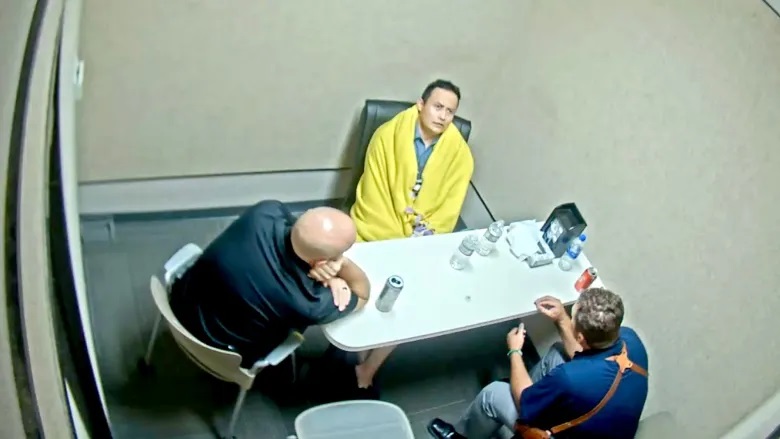
Emotional distress
Perez became so distraught that he began pulling out his hair, hitting himself, making anguished noises and tearing off his shirt while police encouraged him to confess, according to a summary of the case written by U.S. District Court Judge Dolly Gee.
“He was sleep deprived, mentally ill and significantly undergoing symptoms of withdrawal from his psychiatric medications,” Gee wrote.
At one point during the interrogation, investigators drove Perez to get coffee and then to some housing tracts where he had been looking to buy. Detectives berated Perez, insisting he did not need his medication and that they knew he killed his father, according to the case summary.
“When can you take us to show us where Daddy is?” asked one of the investigators.
Later, during their interview, the detectives told Perez his father’s body actually had been found already.
Asked in a deposition about his line of questioning, one of the detectives said: “I believed at the time if we told him that we had located the body, then maybe he would give us more information about what had occurred.”
Police, in court records, insisted Perez was voluntarily undergoing questioning and was free to go at any time. However, in her case summary, Gee wrote that the “circumstances suggested to Perez that he was not free to leave.”
She also noted that there was “no legitimate government interest that would justify treating Perez in this manner while he was in medical distress.”
Father turns up alive
Perez’s nightmare ended shortly after police got a phone call from his sister, who said their father was alive and well. He had actually walked to the train station in Fontana and rode the line to Los Angeles County to visit a relative and then took a bus to visit a female friend, Steering said. Perez Sr. later went to the airport to await a flight to Oakland to visit his daughter.
Police picked up the father at the airport and brought him to the Fontana station.
But the investigation didn’t stop there. Detectives obtained a warrant to again search Perez’s house for evidence that he had assaulted an “unknown victim,” according to Gee’s summary.
It appears none was found.
Perez was not released until after the end of the three-day psychological observation period. He then retrieved his dog from Riverside County Animal Services, tracking her down through an implanted chip, Steering said.
While Gee concluded Fontana detectives had sufficient reason to believe an offense had been committed, she criticized officers for their interrogation tactics.
“A reasonable juror could conclude that the detectives inflicted unconstitutional psychological torture on Perez,” Gee wrote in her summary judgment. “Their tactics indisputably led to Perez’s subjective confusion and disorientation, to the point he falsely confessed to killing his father, and tried to take his own life.”
—————————————————————————-
Fontana Police “Psychologically Tortured” Man to Falsely Confess to Killing His Father
Newport Beach, CA
May 19, 2024
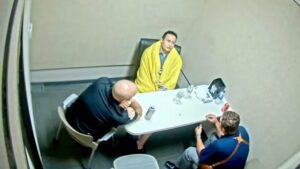 The City of Fontana has paid a Fontana man $900,000[1] for what a federal judge has described as “psychological torture”.
The City of Fontana has paid a Fontana man $900,000[1] for what a federal judge has described as “psychological torture”.
On the evening of August 7, 2018, Thomas Perez, Sr. took a walk with the family dog to get the mail. The dog returned to the family home in Fontana, California, but Thomas Perez, Sr. didn’t.
The next day, August 8, 2018, concerned about his elderly father not coming home, the man’s son, Thomas Perez, Jr. made a missing person report to the Fontana Police Department. He told Fontana PD that his father may have gone to his lady friend’s house that evening, but he didn’t know who she was or where she lived.
As things turned out, Thomas Perez, Sr. had in fact walked to the Fontana Train Station, and had taken the train to Alhambra, California, to visit his lady friend. However, because the Perez home was in disarray from repair work on the home, and because Thomas Perez, Sr. had left his cell phone and wallet there, Fontana Police Officers became suspicious that the father was missing due to foul play.
Fontana Police Department Detectives took Thomas Perez, Jr. to the Fontana Police Department station and subjected him to 17 hours of intense interrogation techniques to get him to confess to killing his father.
The Fontana officers told Thomas Perez, Jr. that in traumatic situations such as when a son kills his father, the memory of the murder is too painful to remember, and that’s why he didn’t recall killing his father.
After many hours of intense interrogation, Thomas Perez, Jr. still denied killing his father. The Detectives then told Thomas Perez, Jr. that they had located his father, that he had been murdered, that he was in the morgue with a toe tag on, that there were stab marks on his body, and that the Detectives had overwhelming evidence that Thomas Perez, Jr. had been the murderer, and that is was time to confess.
The Detectives also brought the family dog to the Fontana Police Station and told Thomas Perez, Jr. that he was going to prison for life and was never going to see the light of day again and that they were going to euthanize his beloved dog[1].
Thomas Perez, Jr. was in shock and was severely traumatized. Eventually, after 16 hours of intense interrogation, they were able to get Thomas Perez, Jr. to affirm the police assertions that he had been in an altercation with his father and stabbed him, and that his father had hit him over the head with a beer bottle. None of that was true, but using well-known police interrogation techniques, they were able to overcome Thomas Perez, Jr.’s will.
Thomas Perez, Jr. was so severely traumatized by the Detectives, that when they left him alone in the interrogation room, he tried to hang himself with his shoelaces.
In a June 15, 2023 Order on Summary Judgment in Thomas Perez, Jr.’s federal lawsuit against the City and the Officers[2], United States District Judge Dolly Gee found that “a reasonable juror could conclude that the Detectives inflicted unconstitutional psychological torture on Perez”:
“First of all, Perez was questioned for 17 hours, even after he was in visible distress . . . The Interrogation Room Video contains hours of footage during which Perez is upset and crying, while Hale[3] and Janusz accuse him of murder, press him to confess, and even imply that his dog might need to be put down as a consequence of his actions . . . (“It did happen . . . you killed him, and he’s dead. . . . You know you killed him, you did. . . . You’re not being honest with yourself. How can you sit there, how can you sit there and say you don’t know what happened, and your dog is sitting there looking at you, knowing that you killed your dad? Look at your dog. She knows, because she was walking through all the blood.”).
At one point while they are telling him to confess, he starts pulling at his own hair, hitting himself, making anguished noises, tears off his own shirt, and nearly falls to the floor.
During this episode, the officers laugh at him and tell him that he is stressing out his dog . . . Later, they tell him that they are going to give away his dog.
Hale and Janusz’s conduct impacted Perez so greatly that he falsely confessed to murdering his father and attempted to commit suicide in the station. He testified that the officers prevented him from sleeping and deprived him of his medication.
There is no legitimate government interest that would justify treating Perez in this manner while he was in medical distress, since the FPD already had two warrants to search his person and property, and he was already essentially in custody and unable to flee or tamper with any evidence.”[4]
United States District Judge Dolly Gee
After 17 hours of Interrogation, the Fontana Detectives got a phone call from Thomas Perez, Jr.’s sister telling them that her father was fine, that he had gone to his lady friend’s home in El Monte on the evening of August 7, 2018, that she had purchased an airline ticket for her father, and that he was at LAX airport waiting to board an airplane to travel to Northern California to visit her.
Thomas Perez, Jr.’s lawyer, Newport Beach Attorney Jerry L. Steering commented:
“After the Fontana Detectives learned that Thomas Perez, Sr. was alive and well and that there had not been any sort of physical altercation with his son, rather than tell him that his father was alive, they took him to the Hospital for a Civil Protective Custody 72-hour (“5150 psych”) hold, and told the hospital that he was suicidal. The Fontana Detectives also told the hospital that he was still in police custody and that no one was permitted to contact him.
Accordingly, for the next three days, Thomas Perez, Jr. was confined on a 5150-psych hold in the hospital without knowing that his father was alive and well, believing that his father had been murdered, that his dog was going to be euthanized, and that he was going to prison for life for murdering his father.”
“I have heard of cases involving allegations of coerced confessions before but had not actually watched how the police did it. When I watched the video recordings of Fontana PD’s interrogation of Mr. Perez, it became apparent to me that these cops could have gotten any of us to confess to killing Lincoln.”
“Between mentally torturing a false confession out of Tom Perez, concealing from him that his father was alive and well, and confining him in the psych ward because they made him suicidal, in my 40 years of suing the police I have never seen that level of deliberate cruelty by the police.”
“Mr. Perez only settled his case because of the looming possibility that the Fontana Officers might have prevailed on an appeal because the Ninth Circuit Court of Appeals has been tossing police misconduct lawsuits based on the Doctrine of Qualified Immunity, which allows the courts to find that a plaintiff’s constitutional rights were violated, but still award the police officers immunity from suit because there was no prior case so factually similar that any police officer would be on notice that the exact conduct complained of was a constitutional violation.”
Jerry L. Steering, Esq.
[1] The Detectives actually later did take Perez, Jr.’s dog to the pound, and he was only able to save the dog from being euthanized because he had a locator chip implanted in the dog.
[2] Thomas Anthony Perez v. City of Fontana, et al., United States District Court, Central District of California Case Number 5:19-cv-01623-DMG-KK.
[3] The Judge mistook FPD Officer Jeremy Hale for Kyle Guthrie.
[4] Thomas Anthony Perez v. City of Fontana, et al., United States District Court, Central District of California Case Number 5:19-cv-01623-DMG-KK, Order on Motion for Summary Judgment, pp. 21-22.
[1] Actual amount $898,000.00.


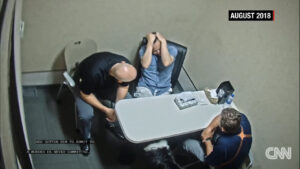


 View CBS News Video on
View CBS News Video on 



